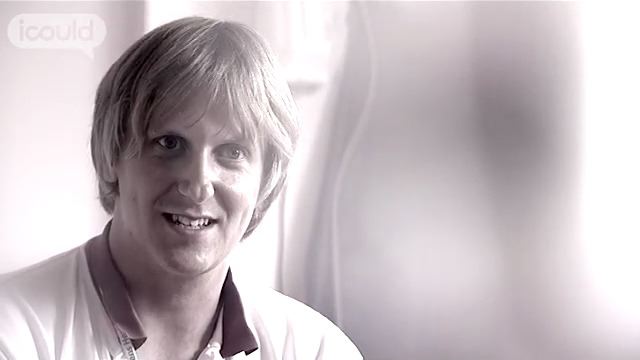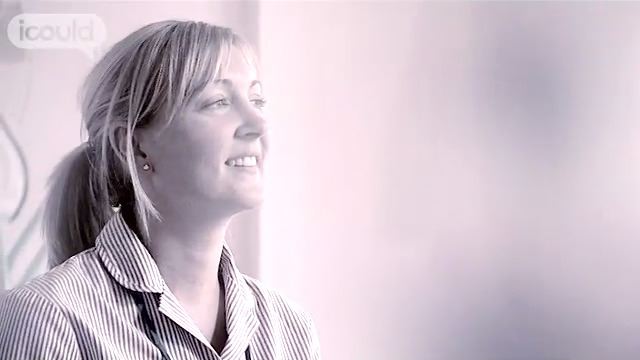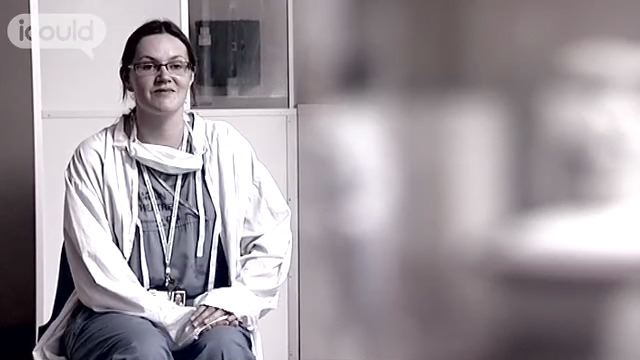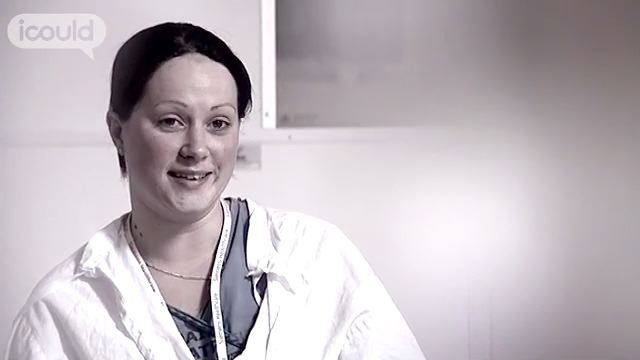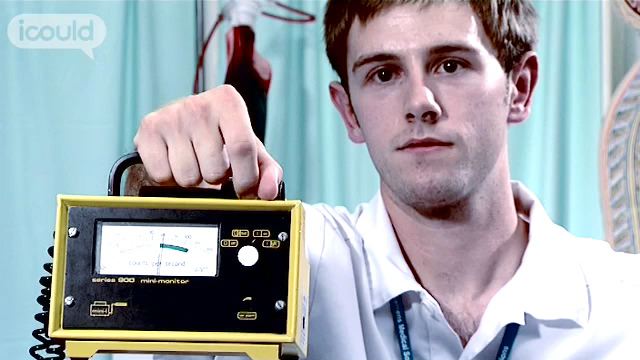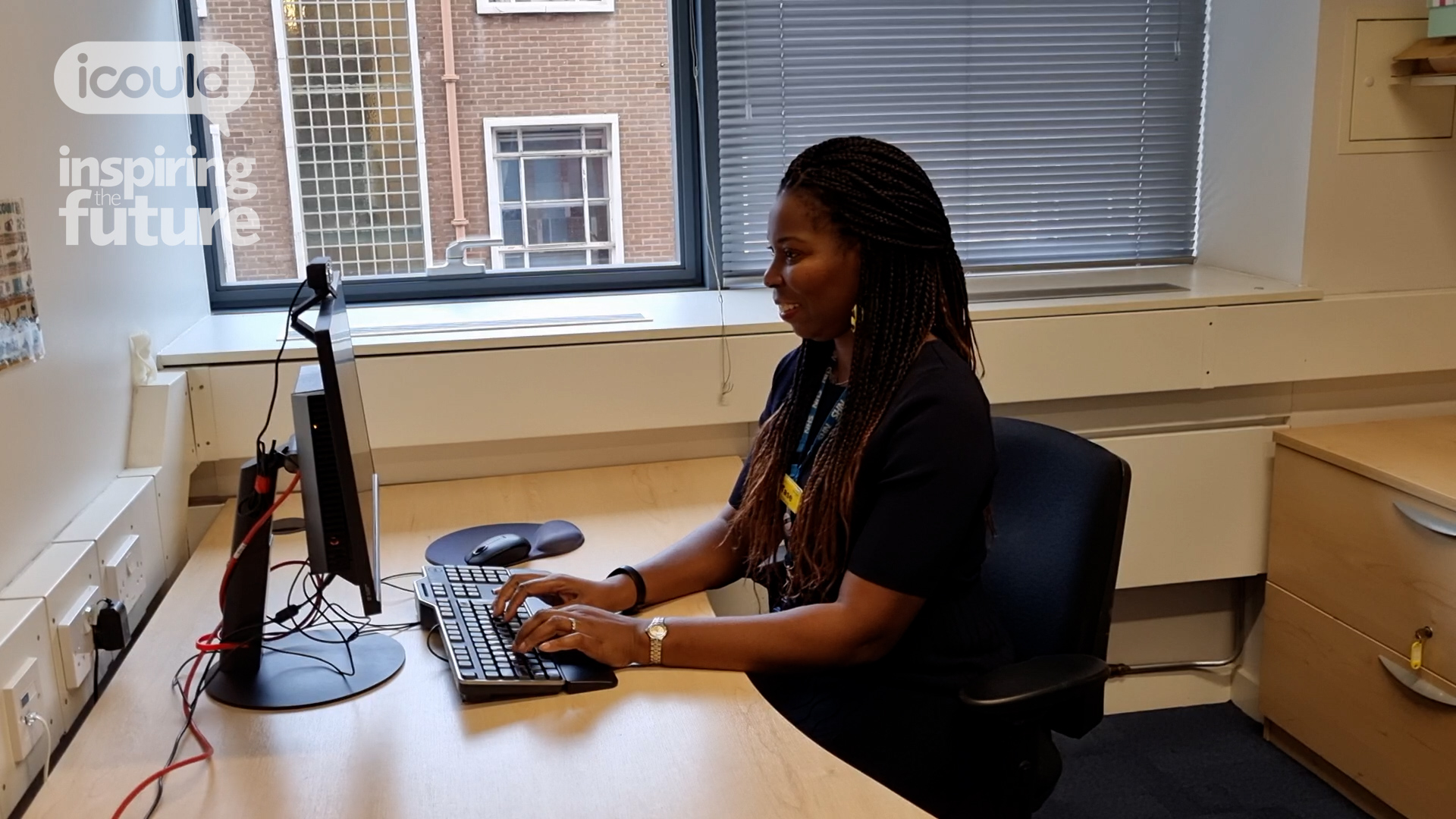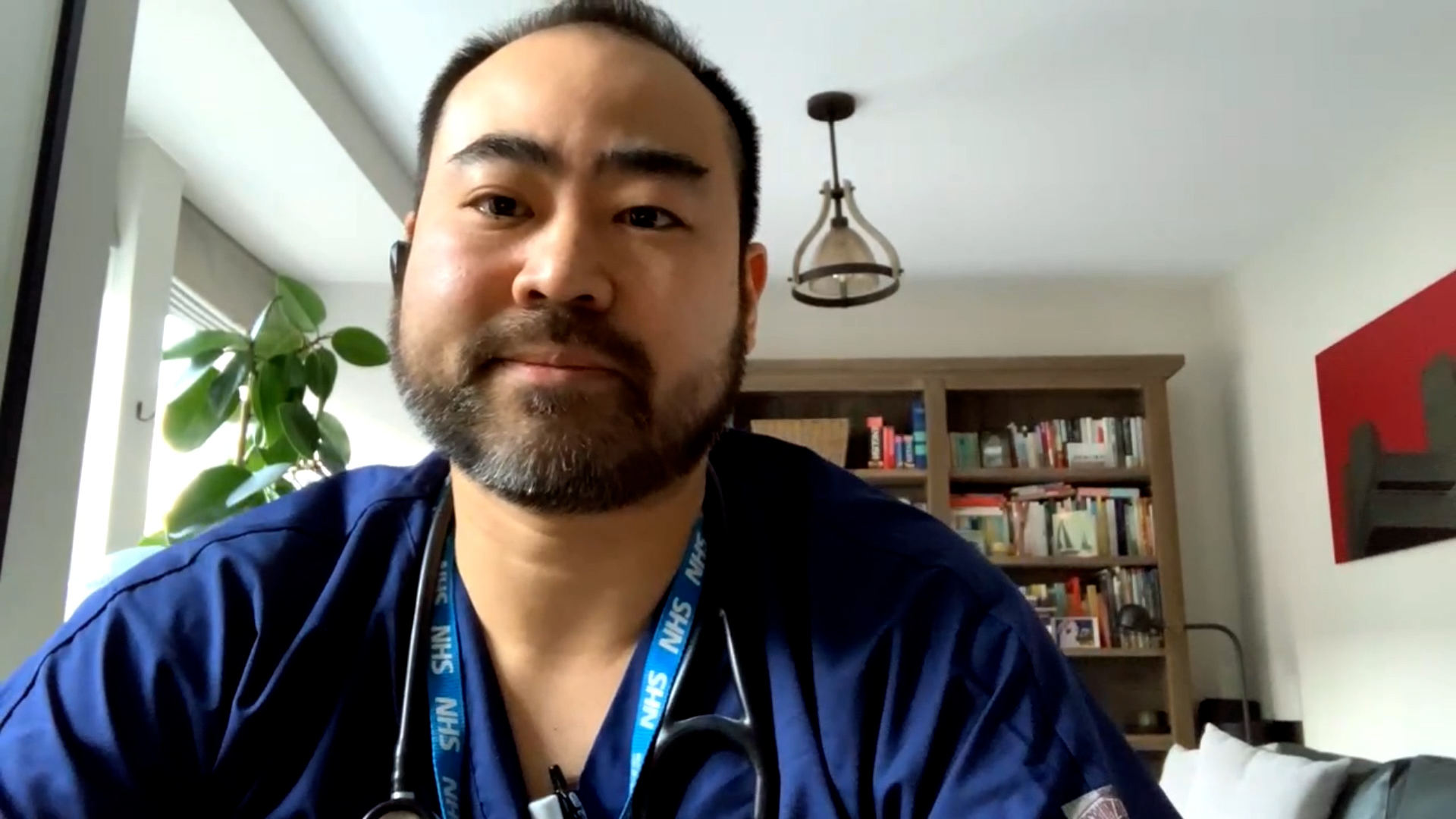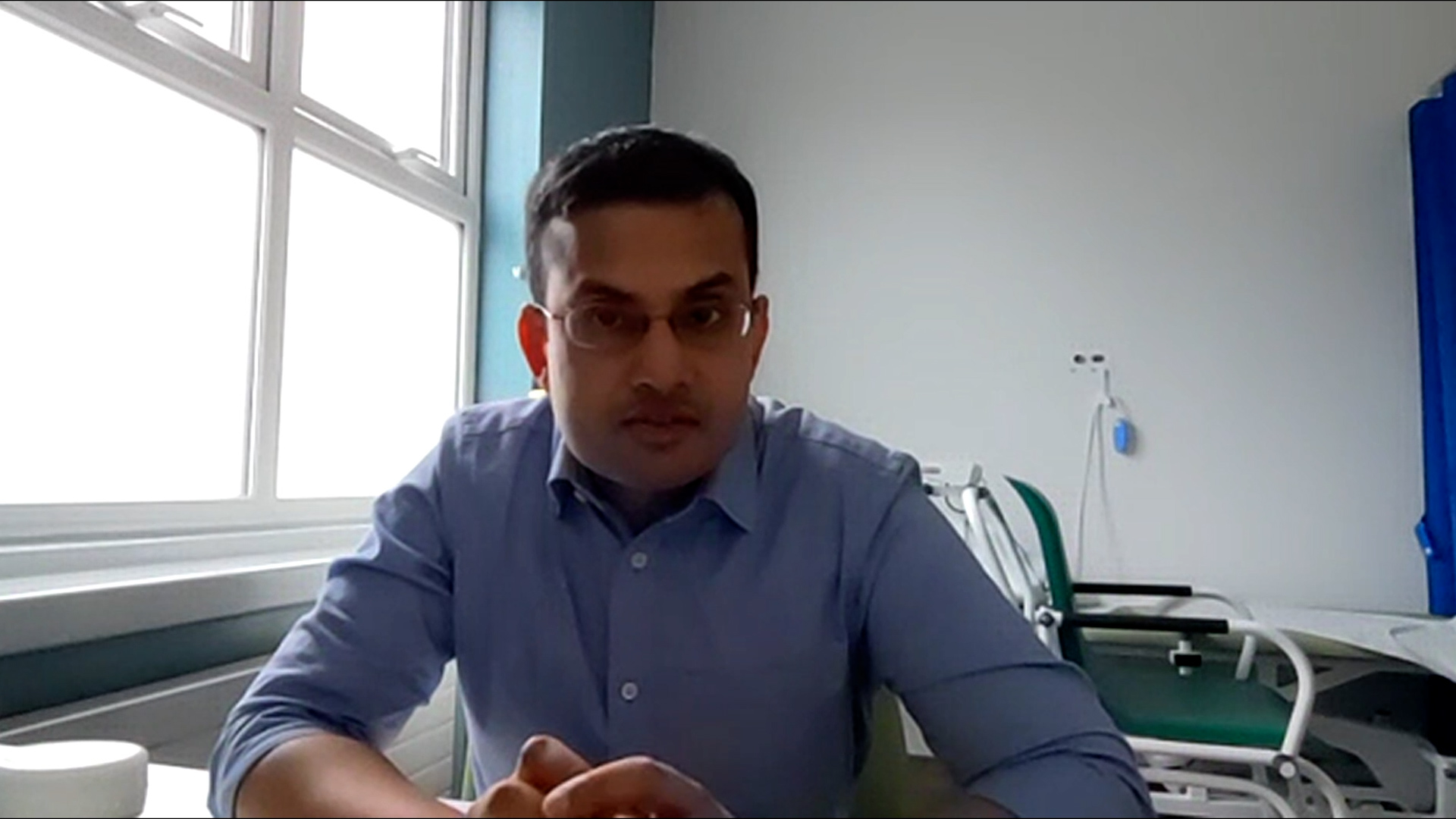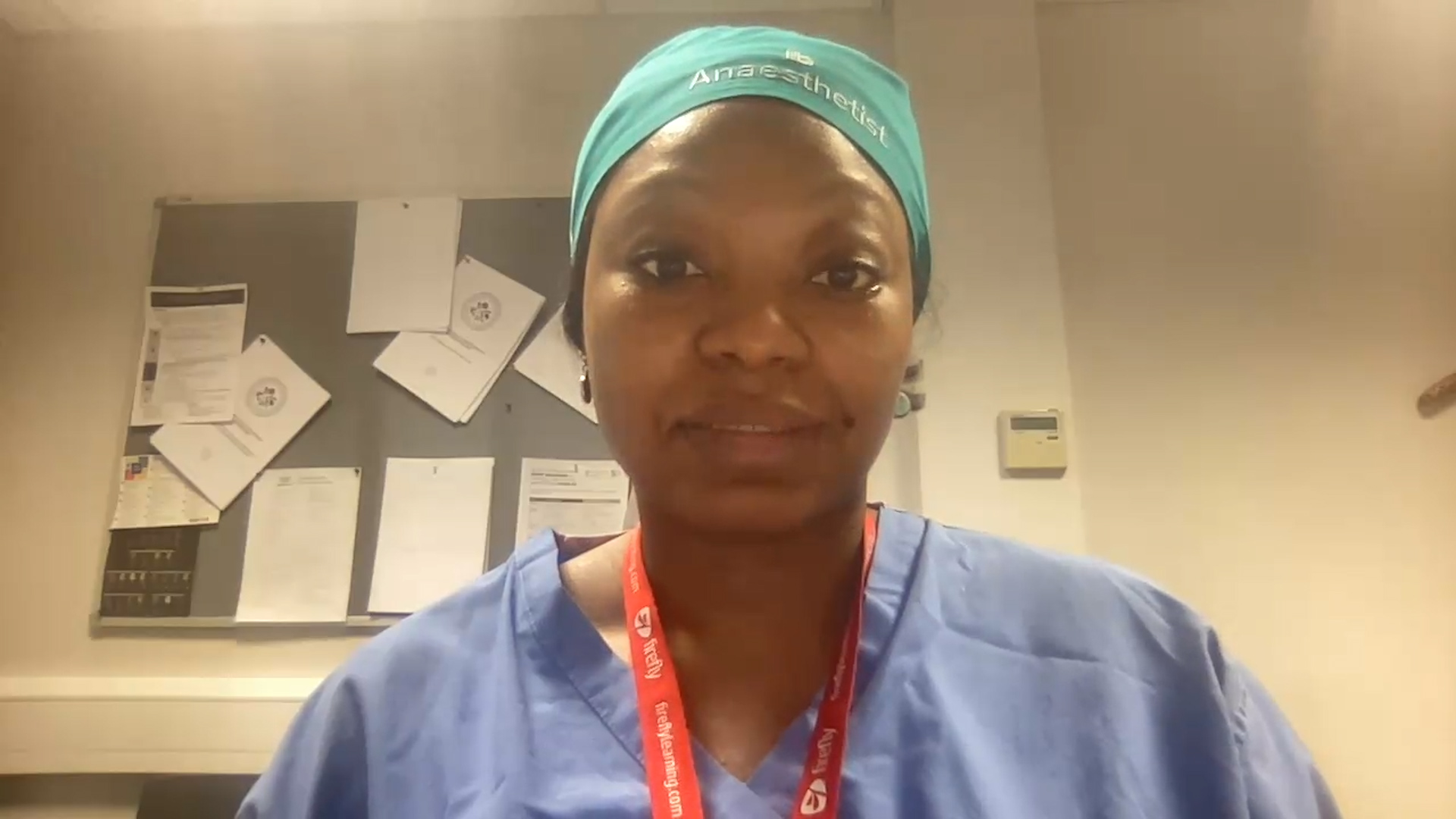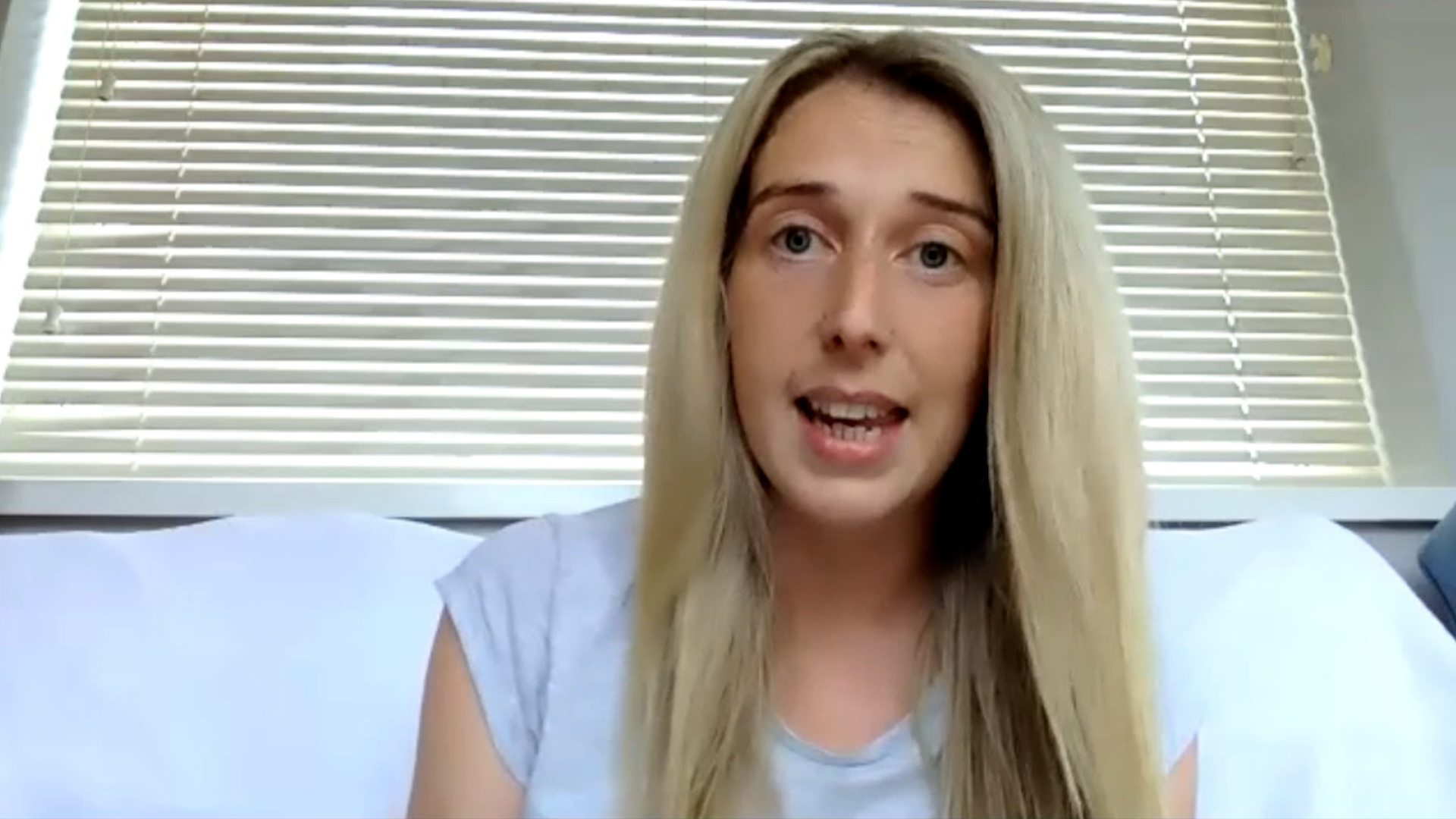Radiographer (diagnostic)
Addenbrookes Hospital
Alex J
00:00:01 My name’s Alex J and I’m one of the Diagnostic Radiographers here at Addenbrookes. Diagnostic means we take X-Rays of people who come through, and we have to cover theatre work, and we have to do mobile X-Rays, so if the patient’s too ill to come to us, then we go out into the hospital and do the X-Rays there.
00:00:20 At school I would say I was pretty much middle of the road, I was in all the middle sets. When I was doing my A-Levels I really liked the idea of teaching, and I really loved Drama and English. So I went away to Uni with the idea of doing that, which please my parents. But halfway through the course a housemate of mine was looking at doing nursing because he was fed up with what he was doing – it sounds a bit sort of cliché and easy to say, but to do something that would make a difference. And it kind of – it did strike a bit of a chord. That’s how I ended up working as a Health Care Assistant, ’cause I’d get some experience before my nursing application went through. When I started in Radiography it wasn’t a sort of an epiphany of mine. I got told about it by a patient I was caring for.
00:01:02 I worked in a care home and she was a patient who was on my floor. She was an incredibly outspoken lady. She suggested it because she saw in the News that there was a shortage of Radiographers. And I’d never heard of it and thought I’d look into it, and it’s her I’ve got to thank for being here, and I genuinely mean that, that’s probably my most inspirational person career-wise who’s helped.
00:01:24 I think the route I took definitely suited me, just because I think if I’d have gone straight in at eighteen, necessarily I don’t know whether I’d have stuck it. It’s quite a – well it can be quite hands on, and a lot of, mainly colleagues who I trained with, initially found that quite difficult. And I definitely would say now my previous kind of drama has helped, because in some ways it is a performance. You deal with quite a variety of people through the day, and I think it kind of helps to have that confidence to be able to talk to anyone and to step up and say what you have to.
00:02:01 In ten years time, hopefully running my own department in the south country. I myself would say out of doors, I spend most of my time down there, any free time’s in Cornwall. So that’s the idea, get down there. I’ve got a young son – I’d like to bring him up down there.
00:02:17 It’s great to work with such a varied bunch at different levels as well because it kind of helps you raise your game really, you really do get to see a lot of things. And no patient’s ever the same, no case is ever the same. And there’s the variety of work, as I was saying I mean we could be up in theatre or on the ward doing an X-Ray or down in the Department. And I think it’s the variety that keeps you going really.
00:02:39 ENDS
Alex J wanted to “make a difference” and whilst working in a care home was advised by an outspoken elderly lady patient about the shortage of radiographers. He looked into it and chose it as a career path. Alex finds variety in his role “no patient is ever the same, no case is ever the same.”
More information about Medical radiographers
The UK average salary is £29,813
There are 37.5 hours in the average working week
The UK workforce is 47% female and 53% male
Future employment
- Uses a range of imaging devices for diagnostic and therapeutic purposes;
- Assesses patients and interprets clinical requirements to determine appropriate radiographic treatments;
- Verifies identity of patient and ensures that necessary preparations have been made for the examination/treatment;
- Decides length and intensity of exposure or strength of dosage of isotope;
- Positions patient and operates x-ray, scanning or fluoroscopic equipment;
- Maintains records of all radiographic/therapeutic work undertaken;
- Plans course of treatment with clinical oncologists and physicists;
- Calculates radiation dosage and maps volume to be treated;
- Explains treatment to patient and management of any side effects;
- Carries out post-treatment reviews and follow-ups.
